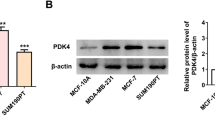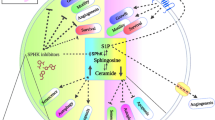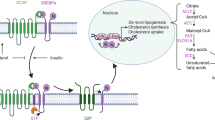Abstract
Acyl-CoA synthetase long chain family member 5 (ACSL5), is a member of the acyl-CoA synthetases (ACSs) family that activates long chain fatty acids by catalyzing the synthesis of fatty acyl-CoAs. The dysregulation of ACSL5 has been reported in some cancers, such as glioma and colon cancers. However, little is known about the role of ACSL5 in acute myeloid leukemia (AML). We found that the expression of ACSL5 was higher in bone marrow cells from AML patients compared with that from healthy donors. ACSL5 level could serve as an independent prognostic predictor of the overall survival of AML patients. In AML cells, the ACSL5 knockdown inhibited cell growth both in vitro and in vivo. Mechanistically, the knockdown of ACSL5 suppressed the activation of the Wnt/β-catenin pathway by suppressing the palmitoylation modification of Wnt3a. Additionally, triacsin c, a pan-ACS family inhibitor, inhibited cell growth and robustly induced cell apoptosis when combined with ABT-199, the FDA approved BCL-2 inhibitor for AML therapy. Our results indicate that ACSL5 is a potential prognosis marker for AML and a promising pharmacological target for the treatment of molecularly stratified AML.
Similar content being viewed by others
References
Yan P, Frankhouser D, Murphy M, Tam HH, Rodriguez B, Curfman J, Trimarchi M, Geyer S, Wu YZ, Whitman SP, Metzeler K, Walker A, Klisovic R, Jacob S, Grever MR, Byrd JC, Bloomfield CD, Garzon R, Blum W, Caligiuri MA, Bundschuh R, Marcucci G. Genome-wide methylation profiling in decitabine-treated patients with acute myeloid leukemia. Blood 2012; 120(12): 2466–2474
Roboz GJ. Current treatment of acute myeloid leukemia. Curr Opin Oncol 2012; 24(6): 711–719
Watkins PA, Maiguel D, Jia Z, Pevsner J. Evidence for 26 distinct acyl-coenzyme A synthetase genes in the human genome. J Lipid Res 2007; 48(12): 2736–2750
Ellis JM, Frahm JL, Li LO, Coleman RA. Acyl-coenzyme A synthetases in metabolic control. Curr Opin Lipidol 2010; 21(3): 212–217
Klett EL, Chen S, Yechoor A, Lih FB, Coleman RA. Long-chain acyl-CoA synthetase isoforms differ in preferences for eicosanoid species and long-chain fatty acids. J Lipid Res 2017; 58(5): 884–894
Meller N, Morgan ME, Wong WP, Altemus JB, Sehayek E. Targeting of acyl-CoA synthetase 5 decreases jejunal fatty acid activation with no effect on dietary long-chain fatty acid absorption. Lipids Health Dis 2013; 12(1): 88
Klaus C, Schneider U, Hedberg C, Schütz AK, Bernhagen J, Waldmann H, Gassler N, Kaemmerer E. Modulating effects of acyl-CoA synthetase 5-derived mitochondrial Wnt2B palmitoylation on intestinal Wnt activity. World J Gastroenterol 2014; 20(40): 14855–14864
Mashima T, Sato S, Sugimoto Y, Tsuruo T, Seimiya H. Promotion of glioma cell survival by acyl-CoA synthetase 5 under extracellular acidosis conditions. Oncogene 2009; 28(1): 9–19
Mashima T, Sato S, Okabe S, Miyata S, Matsuura M, Sugimoto Y, Tsuruo T, Seimiya H. Acyl-CoA synthetase as a cancer survival factor: its inhibition enhances the efficacy of etoposide. Cancer Sci 2009; 100(8): 1556–1562
Hartmann F, Sparla D, Tute E, Tamm M, Schneider U, Jeon MK, Kasperk R, Gassler N, Kaemmerer E. Low acyl-CoA synthetase 5 expression in colorectal carcinomas is prognostic for early tumour recurrence. Pathol Res Pract 2017; 213(3): 261–266
Logan CY, Nusse R. The Wnt signaling pathway in development and disease. Annu Rev Cell Dev Biol 2004; 20(1): 781–810
Yang Y. Wnt signaling in development and disease. Cell Biosci 2012; 2(1): 14
Nusse R, Clevers H. Wnt/β-catenin signaling, disease, and emerging therapeutic modalities. Cell 2017; 169(6): 985–999
Roth J, Zuber C, Park S, Jang I, Lee Y, Kysela KG, Le Fourn V, Santimaria R, Guhl B, Cho JW. Protein N-glycosylation, protein folding, and protein quality control. Mol Cells 2010; 30(6): 497–506
Willert K, Nusse R. Wnt proteins. Cold Spring Harb Perspect Biol 2012; 4(9): a007864
Takada R, Satomi Y, Kurata T, Ueno N, Norioka S, Kondoh H, Takao T, Takada S. Monounsaturated fatty acid modification of Wnt protein: its role in Wnt secretion. Dev Cell 2006; 11(6): 791–801
Hausmann G, Bänziger C, Basler K. Helping Wingless take flight: how WNT proteins are secreted. Nat Rev Mol Cell Biol 2007; 8(4): 331–336
Kaemmerer E, Peuscher A, Reinartz A, Liedtke C, Weiskirchen R, Kopitz J, Gassler N. Human intestinal acyl-CoA synthetase 5 is sensitive to the inhibitor triacsin C. World J Gastroenterol 2011; 17(44): 4883–4889
Mashima T, Oh-hara T, Sato S, Mochizuki M, Sugimoto Y, Yamazaki K, Hamada J, Tada M, Moriuchi T, Ishikawa Y, Kato Y, Tomoda H, Yamori T, Tsuruo T. p53-defective tumors with a functional apoptosome-mediated pathway: a new therapeutic target. J Natl Cancer Inst 2005; 97(10): 765–777
Marino MP, Luce MJ, Reiser J. Small- to large-scale production of lentivirus vectors. Methods Mol Biol 2003; 229: 43–55
Di Veroli GY, Fornari C, Wang D, Mollard S, Bramhall JL, Richards FM, Jodrell DI. Combenefit: an interactive platform for the analysis and visualization of drug combinations. Bioinformatics 2016; 32(18): 2866–2868
Tang Z, Li C, Kang B, Gao G, Li C, Zhang Z. GEPIA: a web server for cancer and normal gene expression profiling and interactive analyses. Nucleic Acids Res 2017; 45(W1): W98–W102
Chopard C, Tong PBV, Tóth P, Schatz M, Yezid H, Debaisieux S, Mettling C, Gross A, Pugnière M, Tu A, Strub JM, Mesnard JM, Vitale N, Beaumelle B. Cyclophilin A enables specific HIV-1 Tat palmitoylation and accumulation in uninfected cells. Nat Commun 2018; 9(1): 2251
Klaus C, Kaemmerer E, Reinartz A, Schneider U, Plum P, Jeon MK, Hose J, Hartmann F, Schnölzer M, Wagner N, Kopitz J, Gassler N. TP53 status regulates ACSL5-induced expression of mitochondrial mortalin in enterocytes and colorectal adenocarcinomas. Cell Tissue Res 2014; 357(1): 267–278
Ko PJ, Dixon SJ. Protein palmitoylation and cancer. EMBO Rep 2018; 19(10): e46666
Fhu CW, Ali A. Protein lipidation by palmitoylation and myristoylation in cancer. Front Cell Dev Biol 2021; 9: 673647
MacDonald BT, Tamai K, He X. Wnt/beta-catenin signaling: components, mechanisms, and diseases. Dev Cell 2009; 17(1): 9–26
Zhan T, Rindtorff N, Boutros M. Wnt signaling in cancer. Oncogene 2017; 36(11): 1461–1473
Gruszka AM, Valli D, Alcalay M. Wnt signalling in acute myeloid leukaemia. Cells 2019; 8(11): 1403
Wang Y, Krivtsov AV, Sinha AU, North TE, Goessling W, Feng Z, Zon LI, Armstrong SA. The Wnt/beta-catenin pathway is required for the development of leukemia stem cells in AML. Science 2010; 327(5973): 1650–1653
Willert K, Brown JD, Danenberg E, Duncan AW, Weissman IL, Reya T, Yates JR3rd, Nusse R. Wnt proteins are lipid-modified and can act as stem cell growth factors. Nature 2003; 423(6938): 448–452
Gao X, Hannoush RN. Single-cell imaging of Wnt palmitoylation by the acyltransferase porcupine. Nat Chem Biol 2014; 10(1): 61–68
Nile AH, Hannoush RN. Fatty acylation of Wnt proteins. Nat Chem Biol 2016; 12(2): 60–69
Miranda M, Galli LM, Enriquez M, Szabo LA, Gao X, Hannoush RN, Burrus LW. Identification of the WNT1 residues required for palmitoylation by Porcupine. FEBS Lett 2014; 588(24): 4815–4824
Gharib E, Nasrinasrabadi P, Zali MR. Development and validation of a lipogenic genes panel for diagnosis and recurrence of colorectal cancer. PLoS One 2020; 15(3): e0229864
Gharib E, Nasri Nasrabadi P, Reza Zali M. miR-497-5p mediates starvation-induced death in colon cancer cells by targeting acyl-CoA synthetase-5 and modulation of lipid metabolism. J Cell Physiol 2020; 235(7–8): 5570–5589
Zhang L, Lv J, Chen C, Wang X. Roles of acyl-CoA synthetase long-chain family member 5 and colony stimulating factor 2 in inhibition of palmitic or stearic acids in lung cancer cell proliferation and metabolism. Cell Biol Toxicol 2021; 37(1): 15–34
Tomoda H, Igarashi K, Cyong JC, Omura S. Evidence for an essential role of long chain acyl-CoA synthetase in animal cell proliferation. Inhibition of long chain acyl-CoA synthetase by triacsins caused inhibition of Raji cell proliferation. J Biol Chem 1991; 266(7): 4214–4219
Mashima T, Sato S, Okabe S, Miyata S, Matsuura M, Sugimoto Y, Tsuruo T, Seimiya H. Acyl-CoA synthetase as a cancer survival factor: its inhibition enhances the efficacy of etoposide. Cancer Sci 2009; 100(8): 1556–1562
Liu F, Kalpage HA, Wang D, Edwards H, Hüttemann M, Ma J, Su Y, Carter J, Li X, Polin L, Kushner J, Dzinic SH, White K, Wang G, Taub JW, Ge Y. Cotargeting of mitochondrial complex I and Bcl-2 shows antileukemic activity against acute myeloid leukemia cells reliant on oxidative phosphorylation. Cancers (Basel) 2020; 12(9): 2400
Valentin R, Grabow S, Davids MS. The rise of apoptosis: targeting apoptosis in hematologic malignancies. Blood 2018; 132(12): 1248–1264
Acknowledgements
We thank Prof. Guido Marcucci of the City of Hope Medical Center and Beckman Research Institute, Duarte, California, USA, for providing us the THP-1-luciferase cell line. This work was supported by the key international cooperation projects of the National Natural Science Foundation of China (No. 81820108004), the major projects of the Zhejiang Provincial Department of Science and Technology (No. 2021C03123), and the Pediatric Leukemia Diagnosis and Therapeutic Technology Research Center of Zhejiang Province (No. JBZX-201904).
Author information
Authors and Affiliations
Corresponding authors
Ethics declarations
Wenle Ye, Jinghan Wang, Jiansong Huang, Xiao He, Zhixin Ma, Xia Li, Xin Huang, Fenglin Li, Shujuan Huang, Jiajia Pan, Jingrui Jin, Qing Ling, Yungui Wang, Yongping Yu, Jie Sun, and Jie Jin declare no conflict of interest. This study was approved by the ethics committee of the First Affiliated Hospital of Zhejiang University. All procedures followed were in accordance with the ethical standards of the responsible committees on human experimentation (institutional and national) and with the Helsinki Declaration of 1975 as revised in 2000. Informed consents were obtained from all patients participating in this study. All institutional and national guidelines for the care and use of laboratory animals were also followed.
Electronic supplementary material
Rights and permissions
About this article
Cite this article
Ye, W., Wang, J., Huang, J. et al. ACSL5, a prognostic factor in acute myeloid leukemia, modulates the activity of Wnt/β-catenin signaling by palmitoylation modification. Front. Med. 17, 685–698 (2023). https://doi.org/10.1007/s11684-022-0942-1
Received:
Accepted:
Published:
Issue Date:
DOI: https://doi.org/10.1007/s11684-022-0942-1




